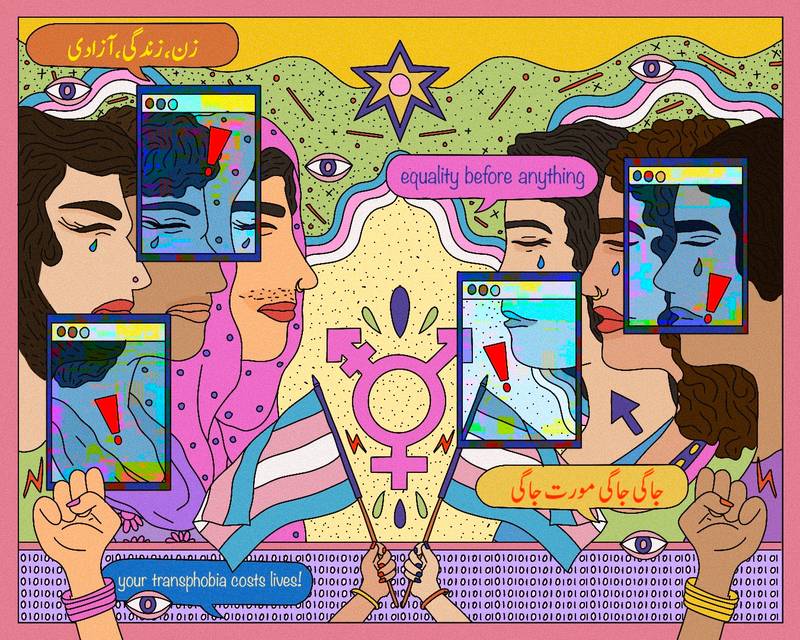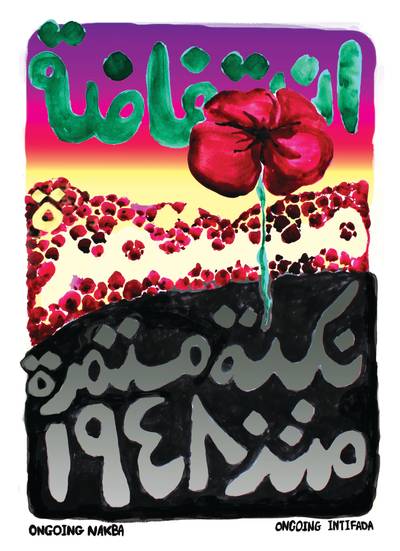

I am terrified, devastated, and drained. Every massacre makes me believe that this world does not deserve our dreams. Israel kills us in full view of the world, yet no one is doing anything to stop this genocide. The West’s presidents supported Israel and funded them to kill us. This war was not going to continue without the West and Arab leader’s consent.
READWhere Should We Go? No Place Is Safe in Gaza
Noura Selmi, a writer and translator from Gaza, has written us an account of her experience living in the south of Gaza amid Israel’s unfolding genocide of Palestinians.
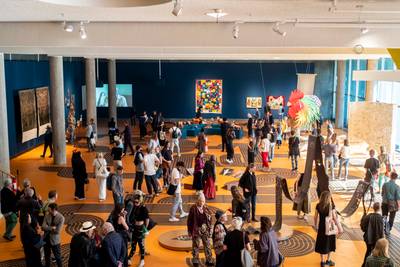

HKW is in an exciting phase of ‘reconstruction’ following the appointment of the new director, Prof. Dr. Bonaventure Soh Bejeng Ndikung, in June 2021. The news of the Cameroon-born curator’s engagement as the institute’s first nonwhite director sent a bolt of excitement through Berlin’s art scene, where large institutions are led by white, largely male directors, and where artists of color, often instrumentalized to garner a progressive title for the city, still face incidences of institutional racism.
READNurturing Seeds of Resistance: A Review of O Quilombismo at Berlin’s HKW
Berlin’s Haus der Kulturen der Welt (HKW), in English, the ‘House of World Cultures’, reopened this year under the leadership of its first non-white director, Prof. Dr Bonaventure Soh Bejeng Ndikung. Its opening exhibition centers the philosophy and lineage of Afro-Brazilian resistance towns known as quilombos and features works by over 65 artists and collectives, all of whom belong to the Global Majority. What does this new chapter mean for the institution and the city, and does it deliver on its egalitarian promise?
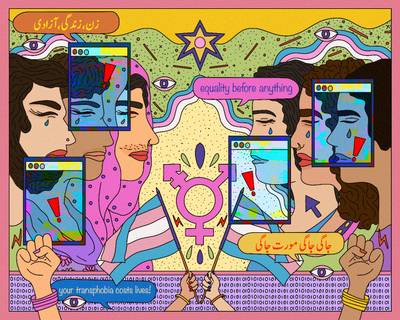

What do a fashion designer, a youth empowerment YouTuber, and a right-wing politician have in common? In Pakistan, the answer is hatred of transgender people, and their battleground of choice is the internet. Historically, the South Asia region has been home to a visible, though marginalized, transgender/khawajasira community, and Pakistan has been one of the leading countries with the most progressive legislation on transgender rights. However, 2021 saw a surge in religious right-wing discourse against transgender rights in the country.
READDigital Hate and the Othering of Pakistan’s Transgender Community
The internet and religion have combined to create a potent cocktail of extreme transphobia in Pakistan in recent years, resulting in creative censorship, the upending of civic protections, and an uptick in violence. And yet the beleaguered khawajasiras of Pakistan fight on.
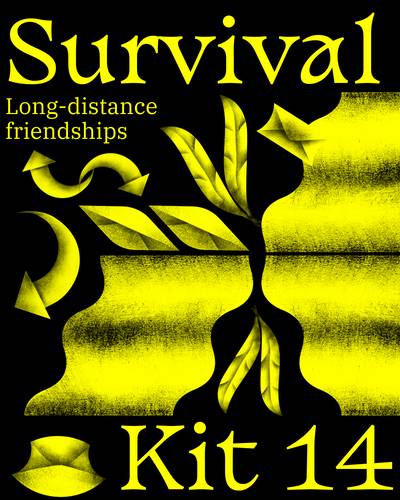

Both the general and the art communities in Latvia can be described as being fairly closed off to uncomfortable questions and even to the role of art in addressing ideologically and politically charged issues. For these reasons alone, Survival Kit must be considered not just another glamour art event but an event that seeks to radically redefine the role of art in the local cultural space.
READPerformances of Peace, Geometries of Friendships: A Review of Survival Kit 14
Survival Kit 14 focuses on the links between the Soviet Union and African cultural diplomacy and tries to broaden local perceptions of different forms of cultural interaction, as well as shed light on lesser-known pages of Eastern European history, dispel racist prejudices and see the seemingly “other” as an essential part of our common experience. In letting the exhibition’s subjects fully speak for themselves, it seems that the curators forgot to provide an interpretive translation, a crucial aspect of friendship between distant regions and nations.
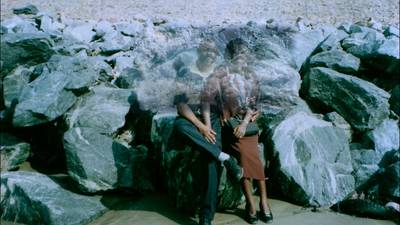

A common thread in the works curated point to silences, known or unknown, around topics such as capital punishment, extraction, human rights, pleasure, and more. This reminds me of what is made clear about silence in Audre Lorde’s 1977 essay on “The Transformation of Silence Into Language and Action.” Whether we are silenced by others or silence ourselves, it is our own voice, and how we use it that will eventually free us in the end.
READSilence, (Feigned) Indifference and Kinship: A Review of African Express—Short Station
Ubuntu Film Club and Think Africa once again join forces with the Helsinki International Film Festival “Love & Anarchy” in order to deliver varied tales from the continent.
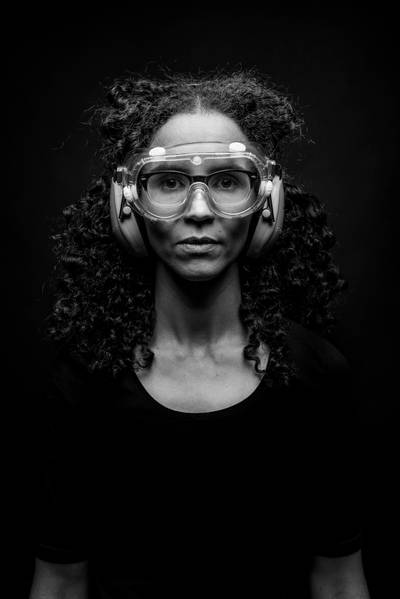

The stapling became the stitching of the colonial wound. The important transition that took place was in calling this work pain-tings, which includes both - the power of the pain that is inflicted and, at the same time, a way to heal transgenerational wounds that continue to be there. I realised quite soon that I was using my energy in the wrong way, as in the case of my first portraiture series titled Shooting Back from 2004. I wanted to stop creating portraits of people who did so much damage because the end result is a portrait of that person, and I don’t want to look at them anymore.
READPatiently Sifting through the Remnants of History: A Conversation with Sasha Huber
Curator and founder of Southnord, Marcia Harvey Isaksson, in conversation with artist Sasha Huber about stitching colonial wounds, remembrance and repair, and following the unpredictable paths of roots and threads.
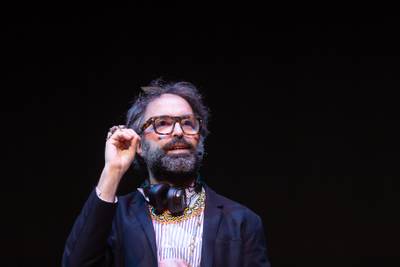

The names we have are not enough. We have to invent a new name. I don’t have a solution, but I know that we have to find a name. One of the points I make is that nowadays, we are in a situation where everybody’s saying we have to stay with or listen to this kind of multiplicity of proposals, the multiverse, and this is politically extremely naïve. If we accept that every name of the Earth and every conception of it is good, what do we do with climate deniers?
READOn Plants and Planetary Names: A Conversation with Emanuele Coccia
An interview with philosopher Emanuele Coccia on plants, names, politics, and love.
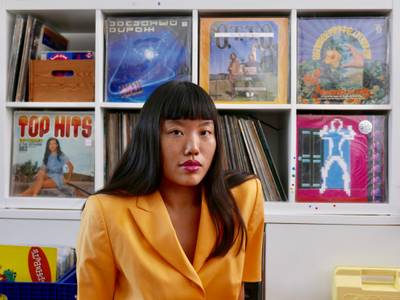

I felt we were living in a crisis within a crisis. I’m not very optimistic about the current systems that we’re living in and how much progress we are making in terms of getting out of this system. Still, the way that I deal with my disappointment and my despair is that I turn to music, underground art, and artist-activist communities.
READDancefloor is a Radicalising Kind of Moment: A Conversation with Ani Phoebe
A conversation with DJ, activist, and founder of Bad Times Disco Ani Phoebe, exploring solidarity work in music spaces during times of austerity and the potential of a political dance floor.
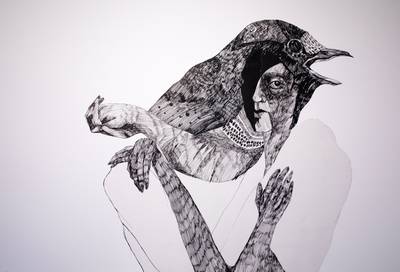

READI wrote a song for a withering flower on the balcony, without knowing what beauty is. A man stood inside the mirror in my room, measuring corners of fat on my chest. We played hopscotch; you said I could use both legs if one of them was dead.The curse of Hephaestus
Two poems by Abhishek Anicca.
